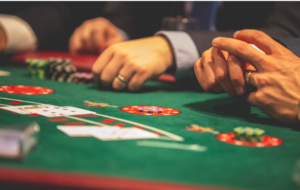What defines a sport? Is it physical exertion, competition, mental focus, or a combination of these elements? The debate over whether poker is a sport has been ongoing for years, with arguments on both sides of the spectrum. In this article, we will delve deeper into poker and sports, exploring what defines a sport and whether or not poker fits the criteria.
Defining a Sport
Before determining whether poker is a sport, we need to understand what a sport is. According to the Oxford English Dictionary, a sport is “an activity involving physical exertion and skill in which an individual or a team competes against another or others for entertainment.” This definition implies that sports require physical activity, but it does not explicitly state that this is a requirement.
However, the International Olympic Committee (IOC) defines a sport as “an activity involving physical exertion and skill, governed by a set of rules or customs, and often engaged in competitively.” The IOC’s definition highlights the importance of physical exertion in sports and acknowledges the role of skill, rules, and competition.
The Definition of Poker
Now that we have established the definition of a sport, let us examine the definition of poker. Poker is a card game that involves skill, strategy, and chance. Players bet on the value of their hand, and the highest-ranking hand at the end of the game wins.
While poker is not a physical activity, it requires significant mental and emotional effort. Players must remain focused and alert, continuously assessing their opponents’ actions and making strategic decisions based on incomplete information.
Is Poker a Sport?
Based on our explored definitions, poker does not fit the traditional definition of a sport. It does not involve physical exertion or athleticism, and a set of rules or customs does not govern it. However, it does involve competition, skill, and strategy, which are essential elements of sports.
Some argue that poker should be considered a sport because of the skill and strategy required to succeed. Professional poker players spend years honing their craft, studying the game, and developing their techniques. Then, they compete in high-stakes tournaments, earning significant sums of money and gaining worldwide recognition for their accomplishments.
Others argue that poker is not a sport because it does not require physical exertion. Instead, they argue that sports should involve physical activity and that poker is simply a game of chance that anyone can play.
The Importance of Categorizing Poker as a Sport
The debate over whether poker is a sport may seem trivial, but it has significant implications for sports and gambling. If poker were to be recognized as a sport, it could open up new opportunities for sponsorship, broadcasting, and legitimacy.
Currently, many countries have strict gambling regulations, making it difficult for poker players to compete in official tournaments or make a living from their skills. By categorizing poker as a sport, it could be subject to different regulations, allowing for more widespread participation and recognition.
On the other hand, some argue that categorizing poker as a sport could be harmful. It could lead to increased gambling addiction and problem gambling as more people become interested in the game. It could also change the nature of the game, making it more focused on competition and less on socialization and entertainment.
Conclusion
In conclusion, the debate over whether poker is a sport is complex, with arguments on both sides of the spectrum. While poker does not fit the traditional definition of a sport, it does involve competition, skill, and strategy, which are essential elements of sports.
Whether or not poker should be considered a sport ultimately depends on one’s definition of sports. For example, poker is not a sport if sports require physical activity. However, if sports are defined more broadly to include activities that involve competition, skill, and strategy, then poker could be considered a sport.
The implications of categorizing poker as a sport are significant, with potential benefits and drawbacks. While it could lead to greater recognition and opportunities for professional players, it could also contribute to the problem of gambling addiction.
Ultimately, whether poker is a sport may never be fully resolved. However, it highlights the challenges of defining sports and the need for ongoing dialogue and discussion. As the world of sports and gambling continues to evolve, it is important to remain open-minded and consider new perspectives on what constitutes a sport.




